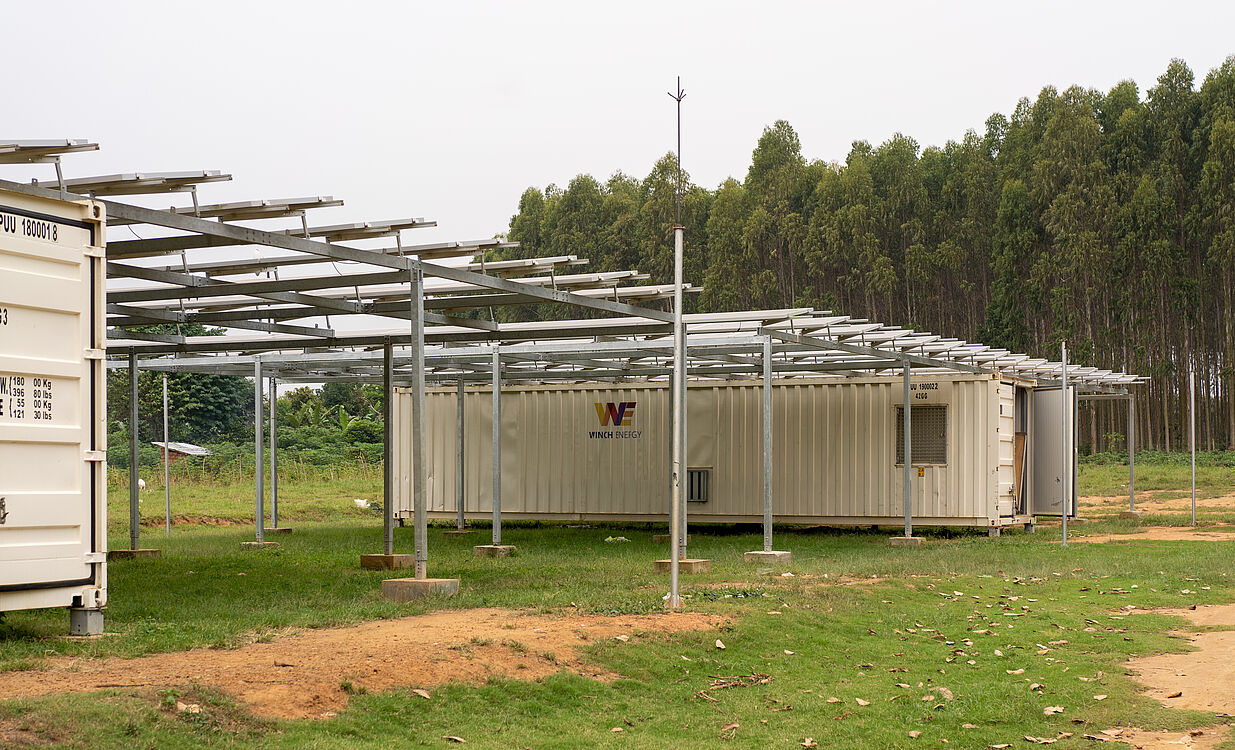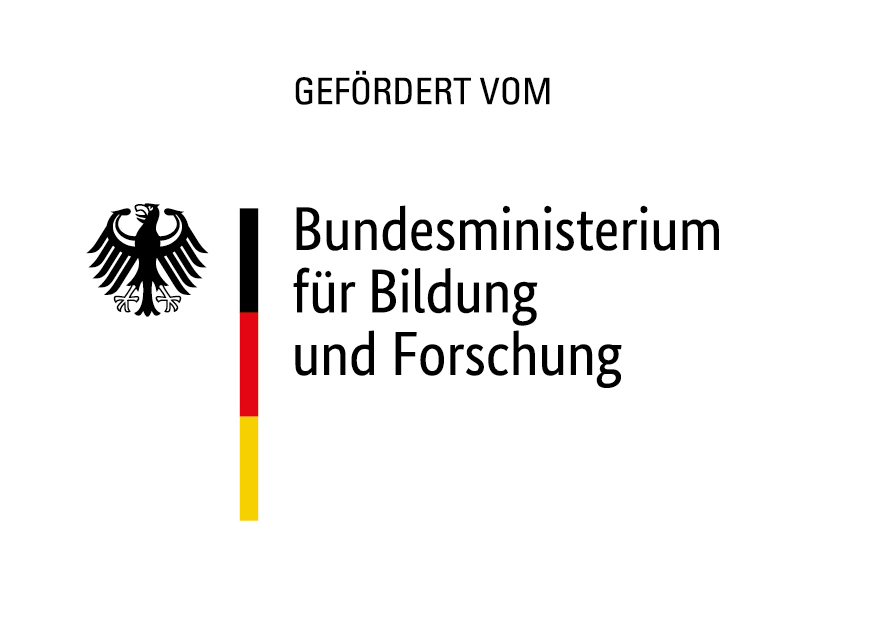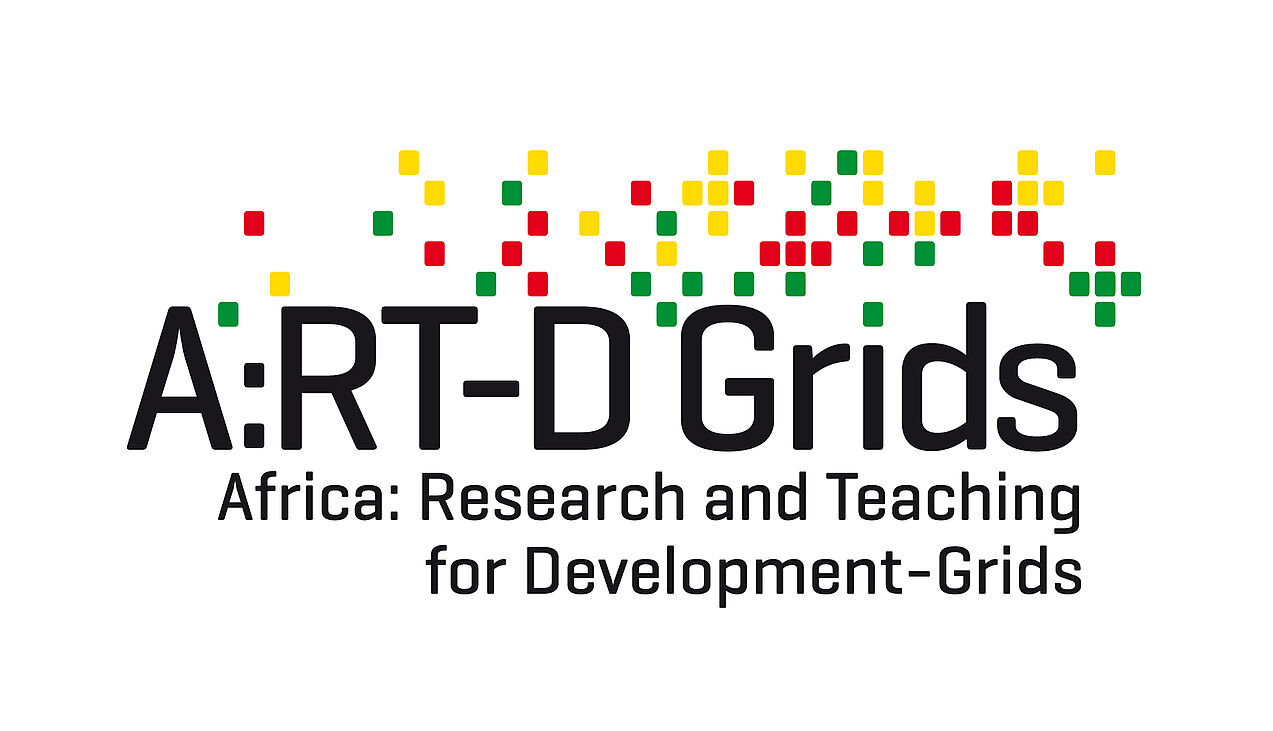Stable power grids for Africa

Researchers at Paderborn University develop modern systems for uninterruptible power supply in rural regions of Africa - Intelligent "microgrids" integrate renewable energies and make an important contribution to regional development
Almost nine out of ten people worldwide have access to electricity today. Nevertheless, in the age of digitalisation and artificial intelligence, 789 million people still live without electricity, according to the latest figures from the United Nations. Almost 70 percent of them live in sub-Saharan Africa alone. This hinders development: the lack of or unstable power supply is still a major obstacle to improving living conditions in remote regions of Africa.
In order to find a solution to the African energy supply problem, researchers at Paderborn University are working in an interdisciplinary team on a cross-national teaching, learning and research platform. "The concept of "energy access for all" is important if we want to provide sustainable development aid," says project coordinator Prof. Dr.-Ing. Stefan Krauter from the Faculty of Electrical Engineering, Computer Science and Mathematics. "Through intelligently controlled, local power grids based on renewable energy sources, we want to enable a practical and robust power supply. Especially in rural areas, this is a prerequisite for people there to have access to modern technologies and the internet." The three-year project is supported by the Federal Ministry of Education and Research (BMBF) with about 2.3 million euros. The project executing organisation is Forschungszentrum Jülich GmbH.
The long-term goal of the African and German project partners is to enable the local people to independently and permanently use the jointly developed energy concept. To this end, the scientists are developing modern training programmes through which they will pass on the necessary practical knowledge to regional experts and educational institutions.
Development needs energy
Affordable, reliable and clean energy for all - this is one of the sustainable development goals of the United Nations. Prof. Dr.-Ing. Stefan Krauter, Chair of "Electrical Power Engineering - Sustainable Energy Concepts" at Paderborn University, knows exactly the consequences of "energy poverty" and which areas are particularly affected: "The predominantly rural communities in East Africa still lack an uninterrupted energy supply today," Krauter explains and points out that this circumstance has a direct impact on the living conditions of the local people. Not only individual households are affected, but also schools and hospitals in particular. "No electricity means that schoolchildren can no longer study in the evenings, that people cannot run competitive businesses and that important medicines cannot be refrigerated," the Paderborn scientist sums up.
Local, sustainable and intelligent solutions
The goal of the recently launched international project is to open up new possibilities for the electrification of remote regions in East Africa. Krauter explains: "We are developing modern mini power grids. The idea is that small, separate power grids, so-called "microgrids", will each supply a spatially limited area such as a neighbourhood or a hospital complex with energy." Each of these microgrids has its own energy sources and supply options, for example solar systems and local storage. The advantage of such island grids: Since not a single large power plant supplies the electricity to the consumers, disturbances cannot spread through a large transmission network. Local grids therefore enable a stable, uninterrupted supply of energy. "Because even where electricity is actually available, there are always massive energy bottlenecks. Power outages regularly paralyse the supply of entire cities," Krauter describes the African energy dilemma. At a later stage, however, these microgrids could be integrated into the main grid of a city or region.
To manage all available resources as efficiently as possible and distribute electricity to where it is needed or can be stored, the power grid must be highly flexible. "Intelligent electricity grids, so-called "smart grids", also connect the various actors in the energy system in terms of communication. The exchange of information within the grids makes it possible to dynamically control the flow of electricity and thus precisely coordinate generation, consumption and storage at any given time," explains the Paderborn electrical engineering professor. For example, energy from a photovoltaic system could be automatically distributed to the various end consumers via batteries as needed. For the future, the international project team plans to not only supply rural areas with electricity in this way, but also to significantly stabilise large national electricity grids.
Tailored to the needs and capacities of East African society
To ensure that the local people can use the new technologies permanently and independently, knowledge transfer is a central component of the new project. African experts and educational institutions are to benefit directly from the technical solutions developed in Paderborn, but they are also to help ensure that these technologies are adapted to local conditions. Krauter's team is therefore developing training concepts that are open to local partners and users. For example, basic knowledge is to be imparted in graduate colleges and also in simple internships: "In our project, research and training are specifically oriented towards the needs of African societies instead of being geared to the high-tech standards of industrialised countries," Krauter emphasises.
Interdisciplinary work for innovative approaches
In order to find future-oriented and sustainable solutions, both experienced researchers and young scientists from different disciplines as well as German and African institutions contribute their expertise to the project. In addition to scientists from the fields of "Power Electronics and Electric Drive Technology", "Sensor Technology" and "Didactics of Technology", cultural scientists and economists from Paderborn University are also working on the innovative solution for energy supply. Because it is not only technical aspects that are decisive for success, but also a tailor-made educational concept, emphasises Paderborn educationalist Prof. Dr. Christine Freitag: "An "Education for Sustainable Development" is our benchmark. Through this approach, people should be empowered to shape the future actively, responsibly and on their own responsibility. Together with our African partners, we therefore also take a look at the connections between education and gender, for example in questions of equal opportunities and conflict potentials with regard to ecological, economic and social challenges."
Universities in South Africa, Uganda and Tanzania are also involved in the project, as are African power generation and energy supply companies as industrial partners, the ECOLOG Institute for Social-Ecological Research and Education, the Photovoltaic Institute Berlin and Asantys Systems. Even though the research focus is on East Africa, the approaches and results should be applicable worldwide in the future, Krauter emphasises.
Project objective
The aim of the project is to develop, together with the African and German partners, new ways for the electrification of remote regions in East Africa through microgrids and their interconnection, which on the one hand meet the need of rural communities for a robust and largely uninterrupted energy supply, and on the other hand meet the politically motivated need for a centrally well-manageable power supply within the framework of a national power grid. Many years of experience have shown that an interdisciplinary approach makes sense for such a project, as the sustainable operation of infrastructure systems does not only depend on sound technology, but social and economic issues also influence sustainable operation. The planned project aims to develop an approach that addresses many relevant aspects in an interdisciplinary manner and identifies holistic solutions. Of particular relevance is the transfer of know-how to local markets and educational institutions. For this purpose, interdisciplinary graduate trainings are offered during the project period, which on the one hand convey the basics, but on the other hand also communicate the current research results. In addition, educational concepts will be developed and evaluated that are open to the partners as well as to interested stakeholders, but also to the users.


Dissertationen
A Novel Autonomous and Real-time Load Monitoring and Control System in Microgrids based on Fuzzy Logic Control and LoRa Wireless Communication
I.A. Mwammenywa, A Novel Autonomous and Real-Time Load Monitoring and Control System in Microgrids Based on Fuzzy Logic Control and LoRa Wireless Communication, 2024.
Analysis and Demand Side Management of East African Rural Microgrids: Modelling and Experimental study
G.H. Philipo, Analysis and Demand Side Management of East African Rural Microgrids: Modelling and Experimental Study, Paderborn, 2024.
Knowledge Transfer for Microgrids Sustainability – the Case of East Africa
P. Bogere, Knowledge Transfer for Microgrids Sustainability – the Case of East Africa, 2024.
Sustainable rural electrification through community-managed mini-grids: Evidence from Tanzania
I.F. Ngoti, Sustainable Rural Electrification through Community-Managed Mini-Grids: Evidence from Tanzania , n.d.
Show all publications
Publications
Teaching and Learning of Microgrids for Secondary School Learners – a Renewable Energy Sustainability Strategy for East African Communities
P. Bogere, A. Belov, K. Temmen, in: Proceedings - First International Conference on Sustainable Energy Education (SEED 2024), Universitat Politècnica de València, 2024, pp. 128–136.
A Didactic Framework for Microgrids Knowledge Transfer – The Case of East Africa
P. Bogere, K. Temmen, in: 2024 IEEE Global Engineering Education Conference (EDUCON), IEEE, 2024.
Smart Metering and Choice Architecture in Demand-Side Management: A Power Resource-Constrained Perspective
L.D. Namujju, I. Mwammenywa, G.M. Kagarura, U. Hilleringmann, B. Hehenkamp, in: 2024 IEEE 8th Energy Conference (ENERGYCON), IEEE, 2024.
Smart Metering and Choice Architecture in Demand-Side Management: A Power Resource-Constrained Perspective
L.D. Namujju, I. Mwammenywa, G.M. Kagarura, U. Hilleringmann, B. Hehenkamp, in: 2024 IEEE 8th Energy Conference (ENERGYCON), IEEE, 2024.
Institutional arrangements and sustainable maintenance management of community-based mini-grids in Tanzania
I.F. Ngoti, Energy Research & Social Science 115 (2024).
Which Media for Whom? The Implementation of Microgrids as a Trigger of Transformational Adult Learning Opportunities in Formal, Informal and Situational Settings in Times of Change
H. Asiimwe, H. Bode, P. Bogere, C. Freitag, T. Mangeni, in: E. Andrzejewska, E. Matthes, S. Schütze, J. Van Wiele (Eds.), Bildungsmedien Für Erwachsene Educational Media for Adults , Verlag Julius Klinkhardt, 2024, p. (pp. 245–255).
Optimized E-Mobility and Portable Storage Integration in an Isolated Rural Solar Microgrid in Uganda
J.N. Kakande, G.H. Philipo, S. Krauter, Solar 4 (2024) 694–727.
The role of sense of ownership in rural community mini-grid management: qualitative case study from Tanzania
I.F. Ngoti, Energy, Sustainability and Society 14 (2024).
Combined Economic and Emission Dispatch of a Microgrid Considering Multiple Generators
G.H. Philipo, J.N. Kakande, S. Krauter, in: Proceedings of the 2023 IEEE PES/IAS PowerAfrica Conference, 2023.
Demand side management potential of refrigeration appliances
J.N. Kakande, G.H. Philipo, S. Krauter, in: Proceedings of the 2023 IEEE PES/IAS PowerAfrica Conference, 2023.
Demand-Side-Management for Optimal dispatch of an Isolated Solar Microgrid
G.H. Philipo, J.N. Kakande, S. Krauter, in: Proceedings of the 2023 IEEE AFRICON, Nairobi, Kenya, 2023.
Work in Progress: Development of a Virtual and Interactive Microgrids Learning Environment for Microgrids Sustainability – The case of East Africa
P. Bogere, H. Bode, K. Temmen, in: M. E. Auer, W. Pachatz, T. Rüütmann (Eds.), Learning in the Age of Digital and Green Transition. ICL 2022. Lecture Notes in Networks and Systems, Springer Nature, ICL 2022, Wien, 2023, pp. 671–679.
Knowledge Transfer Concepts for Microgrids Sustainability - The Case of East Africa
P. Bogere, K. Temmen, H. Bode, in: 2023 IEEE Global Engineering Education Conference (EDUCON), IEEE, 2023.
Skill Sets for Microgrids Sustainability - The Case of East Africa
P. Bogere, H. Bode, K. Temmen, in: 2023 IEEE AFRICON, IEEE, 2023.
Analysis of Electricity Power Generation and Load Profiles in Solar PV Microgrids in Rural Villages of East Africa: Case of Mpale Village in Tanzania
I. Mwammenywa, U. Hilleringmann, in: 2023 IEEE AFRICON, IEEE, 2023.
LoRa-based Swarm Grid Implementation for Rural Electrification in Africa
J.S. Mwakijale, I. Mwammenywa, U. Hilleringmann, in: 2023 IEEE PES/IAS PowerAfrica, IEEE, 2023.
Entgrenzungen. Beiträge zum 28. Kongress der Deutschen Gesellschaft für Erziehungswissenschaft
A. Heinemann, Y. Karakaşoğlu, T. Linnemann, N. Rose, T. Sturm, eds., Entgrenzungen. Beiträge Zum 28. Kongress Der Deutschen Gesellschaft Für Erziehungswissenschaft, Verlag Barbara Budrich, 2023.
Discursive Analysis on Gender and Education for Sustainable Renewable Energy Development: Perspectives from East Africa
H. Asiimwe, in: A. Heinemann, Y. Karakaşoğlu, T. Linnemann, N. Rose, T. Sturm (Eds.), Entgrenzungen. Beiträge Zum 28. Kongress Der Deutschen Gesellschaft Für Erziehungswissenschaft, Verlag Barbara Budrich, 2023.
LoRa Transceiver for Load Monitoring and Control System in Microgrids
I. Mwammenywa, D. Petrov, P. Holle, U. Hilleringmann, in: 2022 International Conference on Engineering and Emerging Technologies (ICEET), IEEE, 2023.
Neural Network-Based Demand-Side Management in a Stand-Alone Solar PV-Battery Microgrid Using Load-Shifting and Peak-Clipping
G.H. Philipo, J.N. Kakande, S. Krauter, Energies 15 (2022).
Projekt Art-D Grids: Nachhaltige und stabile Microgrids in Afrika - eine Plattform für Forschung und Lehre für die Entwicklung
S. Krauter, J. Böcker, C. Freitag, B. Hehenkamp, U. Hilleringmann, K. Temmen, T. Klaus, N. Rohrer, S. Lehmann, in: Tagungsband des 36. PV-Symposiums, 18.-26 Mai 2021, Conexio, Pforzheim, 2021, pp. 305–309.
Load Data Acquisition in Rural East Africa for the Layout of Microgrids and Demand–Side–Management Measures
J.N. Kakande, G.H. Philipo, S. Krauter, in: Proceedings of the 38th European Photovoltaic Solar Energy Conference and Exhibition (EUPVSEC 2021), 2021, pp. 1505–1510.
Show all publications
Project participants
Paderborn University
Warburger Str. 100
33098 Paderborn
Prof. Dr.-Ing. Stefan Krauter (Coordinator)
Tel.: +49 5251 60-2301
E-mail: stefan.krauter@upb.de
ECOLOG-Institut für sozial-ökologische Forschung und Bildung GmbH (non-profit)
Nieschlagstraße 26
30449 Hannover
Tobias Klaus (Coordinator)
Tel: +49 511 473915-0
E-Mail: tobias.klaus@ecolog-institut.de
Asantys Systems GmbH
Am Schneitbach 12
77716 Hofstetten
Nicolas Rohrer
Tel: +49 8332 9254-733
E-Mail: contact@asantys.com
PI Photovoltaik-Institut Berlin AG
Wrangelstr. 100
10997 Berlin
Sven Lehmann
Tel.: +49 30 814 5264-0
E-Mail: lehmann@pi-berlin.com
Associated cooperation partners:
Research:
- Makerere University
- Nelson Mandela - African Institute of Science and Technology (NM-AIST)
- University of the Witwatersrand
Practice:
- East African Centre of Excellence for Renewable Energy and Energy Efficiency (EACREEE).
- Umeme Limited
- German Society for International Cooperation (GIZ) GmbH
- MOTO Solar Power, Zanzibar
